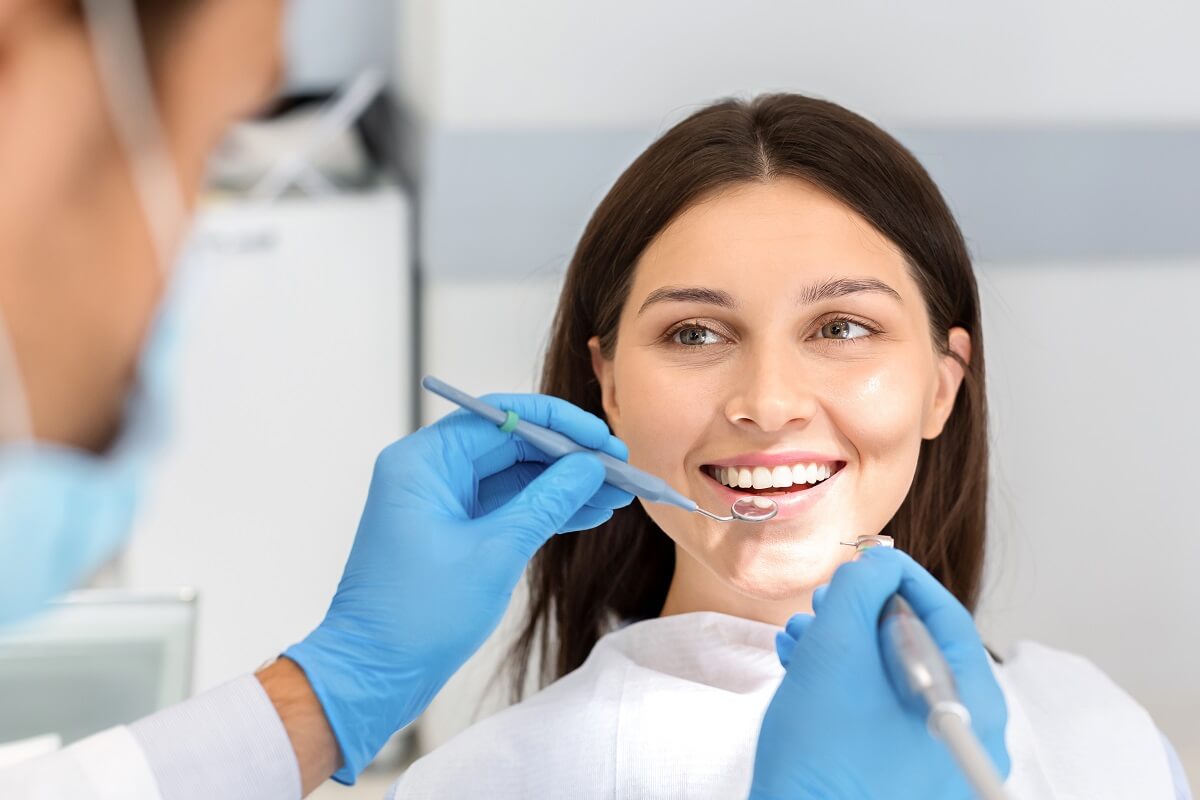In addition to routine brushing and flossing, professional dental cleanings are essential for maintaining the health of teeth. Some people avoid visiting their dentist in York because they believe this process will not only be uncomfortable but also potentially damaging to their smiles.
It’s true that it could feel uncomfortable if it’s been a while since the last cleaning. The idea that getting your teeth cleaned will harm them is untrue. In actuality, the risks associated with neglecting routine cleanings at the dentist outweigh them by a wide margin.
What is a dental cleaning?
A dental cleaning, commonly known as a prophylaxis or prophy, eliminates tartar and plaque, a sticky film of bacteria that develops on teeth. Calculus is a solidly affixed plaque that has hardened. The only way to remove it is with specialized dental tools because it forms above and below the gum line.
Hygienists often provide dental cleanings in York in a dentist’s clinic. The amount of buildup, the patient’s health, and whether there is gum irritation or bleeding will all influence how long and what kind of cleaning is necessary.
Periodontal scaling and root planing, a deep cleaning beneath the gum line carried out by a dentist or periodontist, should not be mistaken for dental prophylaxis.
What happens during a dental cleaning?
So what takes place during a dental cleaning? Cleaning goes beyond what can be accomplished by just brushing and flossing. Using specialized tools, MINT dentists first clean all of your teeth’s surface areas of plaque and tartar. The surfaces that our equipment can’t reach are then cleaned by flossing in between your teeth. A smooth, polished finish is achieved by polishing toward the end of your stay.
Getting a dental cleaning near you aims to clean your teeth of plaque and check your mouth for hints of gum disease or tooth decay. If you experience any problems, your dentist will offer a customized treatment plan. The majority of dental cleaning appointments are completed in about an hour.
- Plaque removal: Plaque accumulates gradually over time and cannot be eliminated by brushing or flossing on its own; a hygienist must remove it during a thorough cleaning. The hygienist will utilize a variety of tools to scrape tartar from the surfaces of your teeth during your cleaning.
- Fluoridation and polishing: Your teeth will be polished, and any surface stains will be removed once the hygienist has cleaned the tartar from them using a rotating brush. To help strengthen your enamel and guard against potential decay, they will then apply fluoride.
How often does one need a dental cleaning?
At least once every six months, you should have your teeth professionally cleaned and checked. If you smoke or have diabetes, for example, you may need to see the dentist more frequently. How frequently you need to make an appointment will be disclosed by your dentist.
Does dental cleaning damage your teeth?
You don’t need to be concerned that frequent dental cleanings will harm your teeth.
Dental cleaning dangers are negligible, especially when weighed against the advantages. However, a few of the most typical dangers and negative effects are as follows:
- Post-event soreness for a few days
- Gum sensitivity
- After cleansing, there was a little bleeding and swelling.
Any medical issues you may have should be discussed with your dentist near you or hygienist so they can take the necessary precautions to ensure your treatment is safe. If you have a lurking medical condition, such as diabetes or heart disease, getting your teeth cleaned can sometimes lead to infections and other issues.
Learn More about This Treatment
Maintain a beautiful and healthy smile. Speak with our dentists at Caledonia Crosstown Dental Centre. When you enter our clinic, our qualified staff is eager to greet you with a smile and offer you top-notch dental care. Make an appointment right now online!

